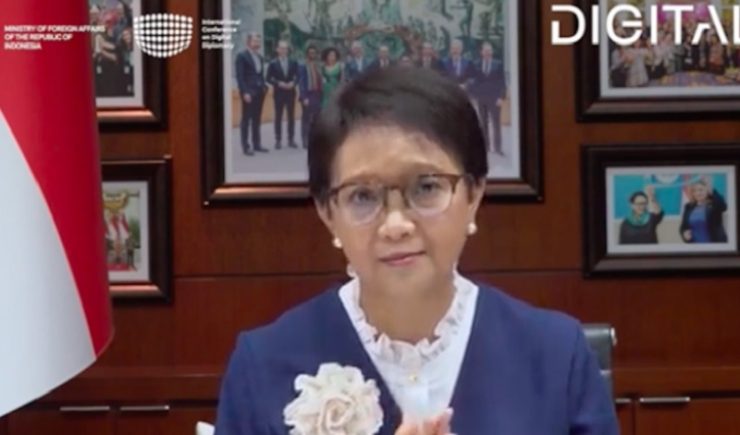THE USE of digital diplomacy is increasing, especially since the pandemic when people were forced to rely more on technology, said Foreign Minister Retno Marsudi, Tuesday (11/16).
By conducting diplomacy digitally, she said, leaders do not need to attend international meetings because they can send pre-recorded speeches or deliver them virtually.
Digital diplomacy has also been adopted by the UN Security Council, which voted by e-mail to reach a resolution, as well as the global COVAX mechanism which has successfully coordinated the delivery of hundreds of millions of doses of COVID-19 vaccine around the world without having to go through a physical meeting.
“Despite all its values, digital diplomacy cannot replace face-to-face diplomacy, but digital diplomacy still exists and the need will continue to increase,” said Retno when opening the virtual summit of the International Conference on Digital Diplomacy (ICDD) 2021.
Given that its use will continue to increase, she described three efforts to advance digital diplomacy in the future.
First, the need to strengthen trust in digital diplomacy. In this case, the acceleration of the use of digital diplomacy must not sacrifice security and ethical aspects, especially with the participation of stakeholders outside of traditional diplomatic actors.
Concerns about cybersecurity, data privacy and internet governance must be addressed to create a trusted digital diplomacy environment.
“With online platforms, there must be transparency and agreement from the start about who is present, what type of personal data is collected, and whether interactions will be recorded. This is very important when it comes to secret meetings or discussions about difficult matters,” Retno stated.
Second, the need to bridge the gap in digital diplomacy between countries because not all countries adapt to using digital diplomacy, let alone have the required capacity and resources.
To that end, assistance should be provided to developing countries to strengthen their digital diplomacy infrastructure, including increasing digital literacy and skills capacity, investing in affordable digital technologies, and developing safe and secure online platforms.
“At the same time, we must learn from each other through the exchange of best practices and lessons on how to take full advantage of digital diplomacy,” Retno noted.
Third, the Indonesian Foreign Minister emphasized the importance of using digital diplomacy to address global issues.
Indonesia, for example, is leveraging digital diplomacy for the purpose of managing crises by using a mobile app to expand services for its citizens during the pandemic.
In the future, the use of digital technology can be expanded by exploring the use of artificial intelligence to analyze data such as trade patterns, foreign policy, and news from around the world to create a more responsive and informative foreign policy decision-making process.
“In the future, we might use virtual reality to visit conflict zones or see the devastation caused by climate change to help us better understand the situation on the ground,” she concluded.
ICDD is organized by the Indonesian government to discuss the use of technology in the implementation of diplomacy and other interests, such as the economy.
Held virtually from Bali with the theme “Unmasking Digital Diplomacy in the New Normal”, the conference was attended by around 21 countries including Australia, Brunei Darussalam, Cambodia, Finland, Malaysia, Philippines, Singapore, Vietnam, and Chile. [antaranews]
















